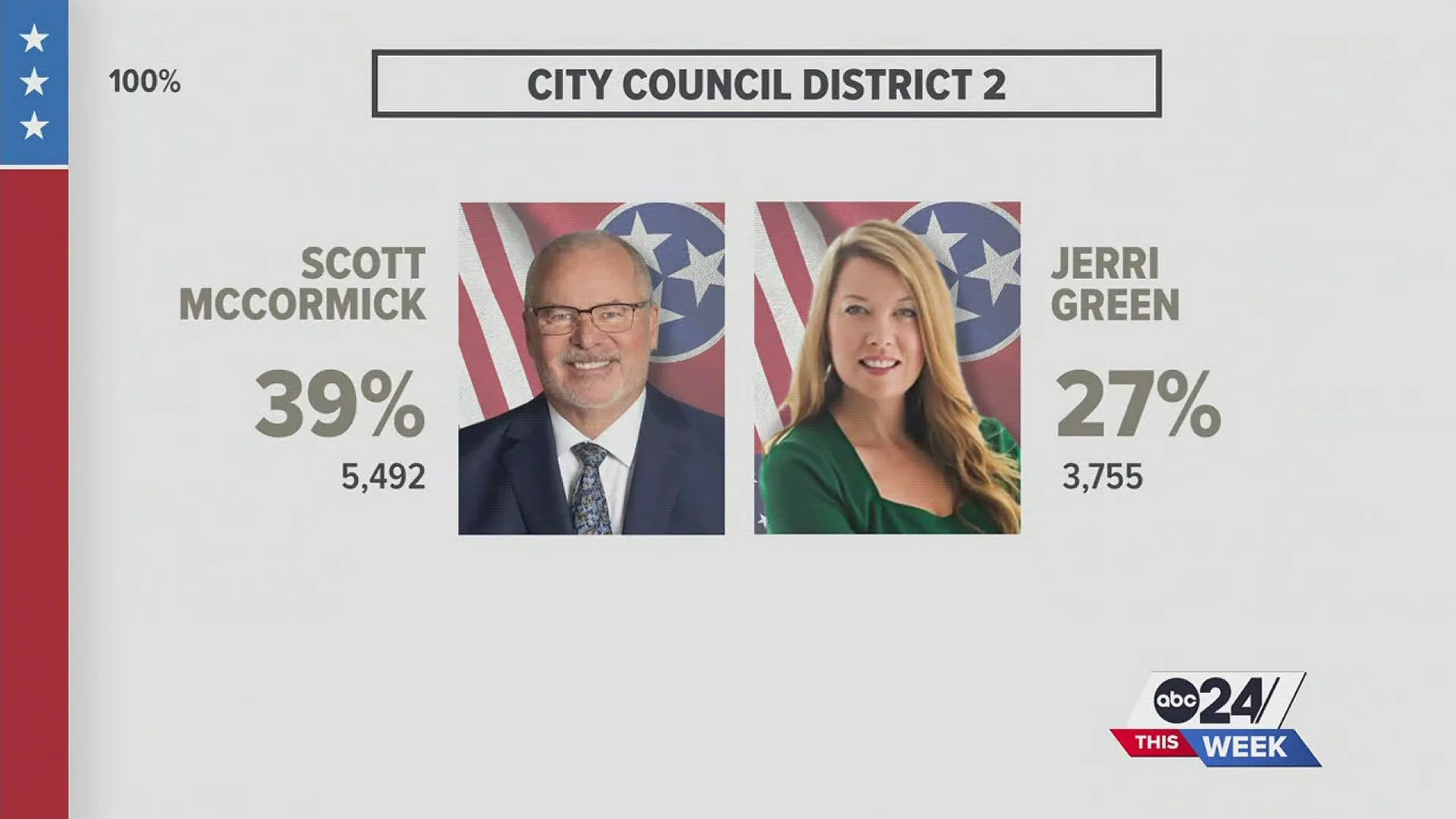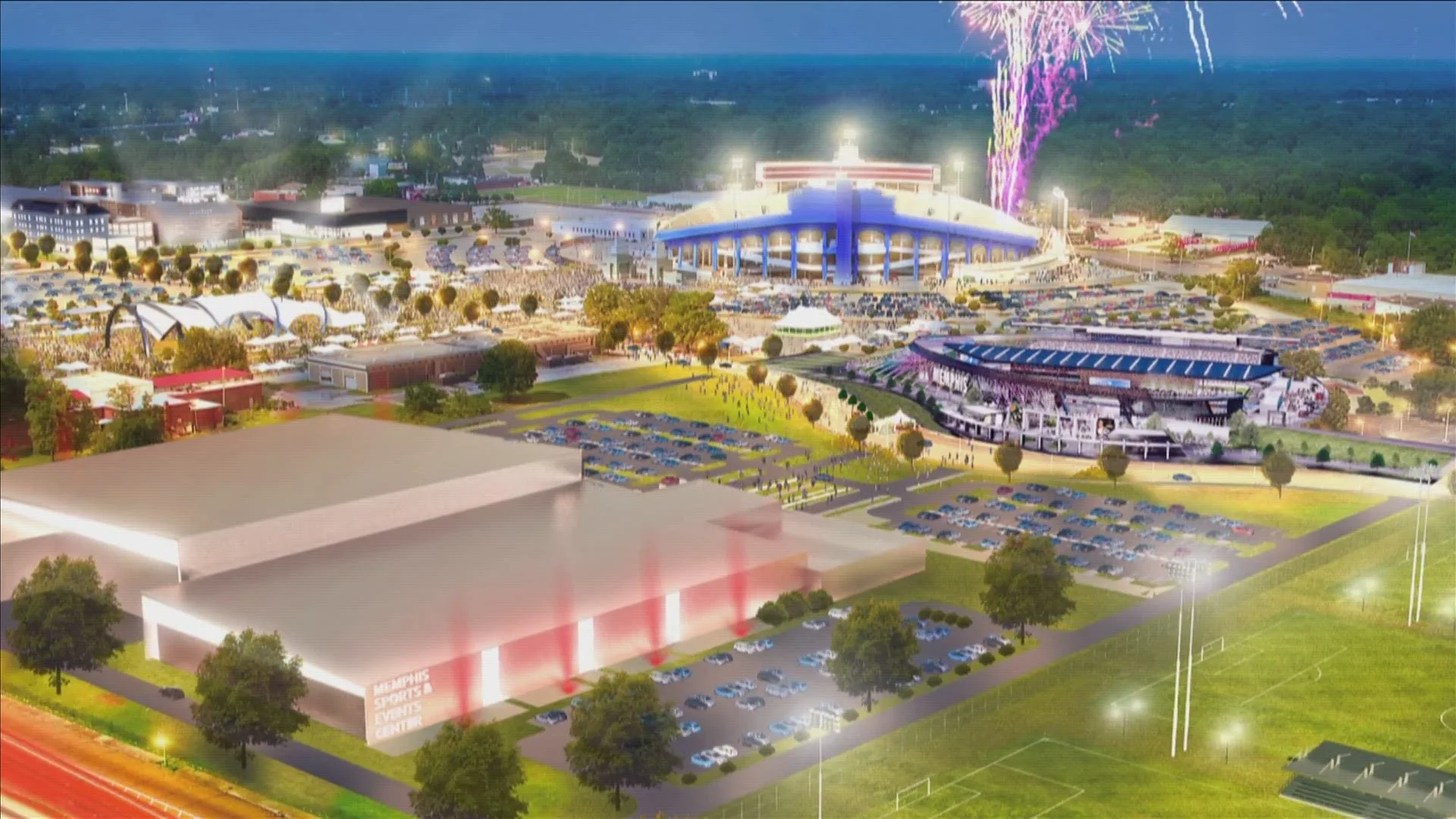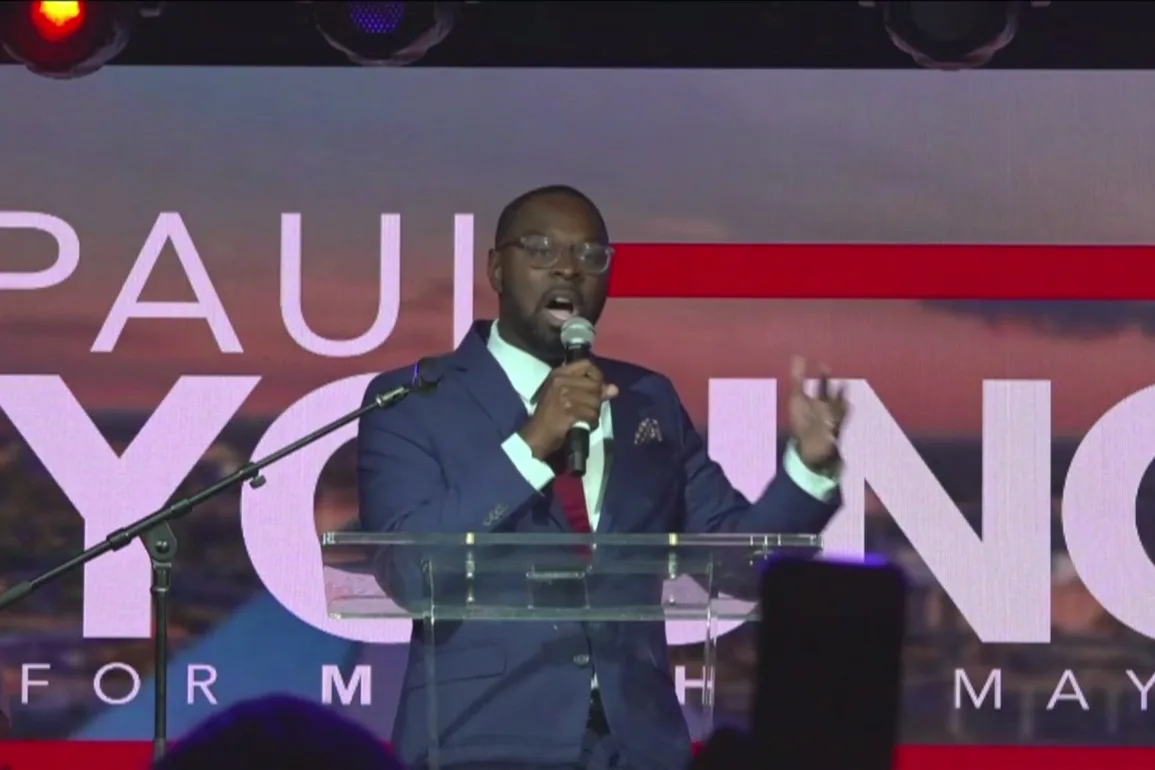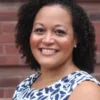The day after winning the Memphis mayoral race, mayor-elect Paul Young stopped by ABC24 to discuss the future of Memphis with Richard Ransom and Otis Sanford.
The day after winning the Memphis mayoral race, mayor-elect Paul Young stopped by ABC24 to discuss the future of Memphis.
Anchor Richard Ransom and political analyst Otis Sanford congratulated Young on the big win for the city’s top job before diving in to hear the mayor-elect’s take on police chief C.J. Davis, what helped his chances in the election and whether any rival candidates might become cabinet heads.
Here is a transcript of the conversation:
Ransom: I am fascinated by your campaign because here you walked into this basically as a bureaucrat. I mean, you’re behind the scenes. You learned how the sausage was made, so to speak.
You had no name recognition. You never held office before. All these big endorsements within the power structure of Memphis went with somebody else. Yet, you were able to do this and get more funding than anyone else.
I just wonder, what was your strategy? Did you anticipate that it was going to be a two-man race; a three-man race, a four-man race? How did it evolve in a way that might have surprised you that you weren’t expecting?
Young: I certainly didn’t anticipate it being a 17-person race. I also didn’t anticipate former mayor Herenton getting in the race and having the name recognition that he brings to bear, but when I started, I had a mission, and my mission was to work on behalf of the people of this city.
I knew one thing — that no one in the race was going to outwork me. I said it in every interview, in every forum. The money that was raised was because of hard work. The doors that we knocked down were because of hard work, and the hard work was rewarded.
Last night was very good, but we know we have a lot more work to do. The way that I would usually say it, is that nobody’s going to outwork me before the campaign, and that no one’s going to outwork me after I get the job.
Sanford: What message do you think the voters were sending in this election? You and Van Turner were the youngest of the four major candidates, and you got more votes than Floyd Bonner and Willie Herenton combined as the two oldest of the major candidates.
Turnout was low, but what do you think is the overall message that voters were trying to send here?
Young: There comes a time where there’s always time for the next generation of leadership to step up. We’ve seen it in elections in cities all around this country.
We’re not the only city to elect a mayor that is under the age of 45. About 11 major cities across the country have done it in the past five or six years, and so Memphis is no different. We’re always looking for the next generation of leadership and they want that person to be prepared.
I think the message that the city was sending was that “we’re ready” and it’s that time.
Ransom: In your victory speech, there was one point where you talked about his being an “election of transformation” — that you wanted to get rid of hopelessness in favor of being hopeful; poverty to prosperity, hurt to healed, stalled to thriving. Amen, to all of that, but it is a tall order.
How do you want us in the media and the public to measure your success and whether you’re achieving your goals as your term progresses? Should there be a one-year marker; a two year marker? What are you thinking? 100 days?
Young: We’re dealing with issues that have been plaguing us for the last 60; 70 years. What I want people to judge our administration on is indications of progress.
You’re not going to see poverty completely alleviated in four years, but you should see indications of progress. You should see the numbers slowly going down.
That’s what I hope to be measured on. All of those statistics that we talk about, whether it’s poverty rate, health in our communities, the level of blight that we’re seeing in our communities, the instances of violence that we’re seeing in our communities.
We want to see it trending in the right direction, and that’s my goal.
More Videos
Sanford: You mentioned earlier that there were 17 candidates in this race. I wonder if you would tell us what your views are on this push to either go to either runoffs in the next election or even partisan primaries.
You will be affected by that because I assume you plan to run for re-election.
Young: Yeah.
Sanford: Which on would you be in favor of, if so, and how active will you be in favor of it to make sure that that happens?
Young: I’m not a supporter of partisan primaries. I believe that its just unnecessary in a city election — it’s more divisiveness, but I do believe we need a runoff. It makes just logical sense.
We want the elected leaver of our city to have a true mandate — to have the majority of the people say “this is who we want.” I would be a strong supporter and advocate for a runoff because I’ve said it many times on the campaign, “It’s not about me.”
It’s not about my odds of winning. Its about what’s best for the city. I really and truly believe that.
I really don’t want to be a politician. I just want this job. It just so happens that in order to get this job, I have to go through a political process, so I want to help make the best decisions that are going to move our city forward for the future.
Sanford: So you will, assuming the city council approves let’s say runoffs, you will actively support that —
Young: Absolutely.
Sanford: — when it goes to a referendum?
Young: Yes, absolutely.
Ransom: And you may have also made some news when Otis said “I assume you want to run for reelection.” Are you thinking that this is an eight-year-job — not a four-year-job?
Young: I think you always have to think in that time frame, but obviously when we get about three and a half years in, we’ll make a decision on what we’ll do. I presume so.


More Videos
Ransom: I would ask you about the turnout. You could make the case that cynicism was the winner. I’ve seen the chatter on social media — “Once again, the candidate that raised the most money won. We have seven incumbents that are staying on city council. They got re-elected.”
People don’t really feel like there was a push to really change things. What would you say to folks that feeling of cynicism about what happened?
Young: Certainly turnout was not what we wanted, but I certainly wouldn’t look at the election in that way. The candidate that had the most money also had the most donors. In fact, more donors than all the other campaigns combined.
That’s not politics as usual. That’s engagement in a way that we haven’t even seen in our city ever before.
And I hadn’t tested all of them, but I would guarantee we knocked on more doors than every one of them combined, because we were out here doing the work. And so I think we changed the way politics looked.
We had attack ads coming our way — didn’t respond. We could have, but we didn’t because that’s not the message we wanted to send to our community.
I don’t think that you need to see high-level African American leaders in our city throwing mud at each other. Talk about your vision for how you’re going to move this city forward.
That was my goal, and I think we saw something different in our city because I was the one that won.
People were saying “People like a fight in Memphis — they want to see you fight,” and I said “We’re going to fight with optimism and hope. That’s how we’re going to fight.” And that’s what won.
Ransom: You got seven percent — if you look at your total vote count — versus how many registered voters there are — 373,000 in Memphis. Your 24 or 25,000 is about seven percent.
What does that say about the level of people being really discouraged with what you can possibly do?
Young: I think that’s just voter apathy in general. We live in a world where people don’t feel connected to the politics. They feel like, no matter who’s in office, conditions don’t change in my neighborhood. No matter who’s here, what happens to my kid tomorrow is going to be the same.
And so it’s incumbent upon me and all of the other elected officials in our community to educate the community on why that’s important. Not just so that I can win an election, but so that we can change the outcomes for the people in our city.
Sanford: In the time we have left, we probably have about two or three rapid fire questions. The first one that I have is about the police department and specifically the police chief.
You said during the campaign that you’re not going to announce hires, you’re not going to fires during the campaign. Now that you are the mayor-elect, I assume you’re going to have a sit down with chief Davis.
What are your thoughts about that and what are your thoughts about her future?
Young: I’m definitely going to have a sit down with chief Davis. I think it’s too early to say what will happen in the future. I want to hear where her head is — what does she think about being in the role?
We’re going to have those dialogues over the next couple of weeks. We’re going to be announcing our transition team and more to come on that.
Ransom: Mayor Strickland campaigned twice on the crime issue. It helped him win election both times, yet crime is worse now than it’s ever been. It has been an albatross not only around his time as mayor but mayors before him too — you can’t just put it on one man — but what do you think is one or two keys to changing that trajectory as you look at it right now?
Young: I think the most important thing is to elevate the urgency. Right now, what Memphians want is someone to hear their cries and their pleas, and they feel like no one’s listening because everything they see is people pointing fingers and saying “It’s this person’s fault; it’s the d.a.’s fault, it’s the judge’s fault, it’s the mayor’s fault, it’s the police chief’s fault.”
It’s all of our fault, so now that that’s out of the way, what are we going to do? I want to elevate the urgency. I want people to see us all at the table on a frequent basis working to reduce the level of violence that we see in our community, and that’s what they’re going to get


More Videos
Sanford: There’s been a lot of talk lately about the renovations to sports stadiums — FedexForum and Simmons Bank Liberty Stadium. There wasn’t a lot said during the campaign about that — there was some, but now that you are mayor-elect, what are you going to do about this, in terms of setting some priorities?
Young: First I want to have conversations with all the stakeholders and understand what the priorities for them are, but I know that we have — just from my perspective on the outside looking in — we want to make sure the Grizzlies stay in Memphis and we want to make sure that University of Memphis is able to move to a bigger conference.
We know we have limited amount of funds to achieve those goals. I want to work with them to figure out how can we get the capital … that both projects can be executed.
Ransom: One thing I have to say, at least form the debate we did with you and five other candidates is that every one on that stage did care about the future of Memphis.
Are there one or two of them — maybe more — that you would like to reach out to as you decide whose going to be a part of your administration where you might see a future for a good working relationship there. Any names you’d like to throw out there?
Young: I don’t have any names, but I’m certainly open to working with anybody that wants to advance Memphis, and so I’m sure we’ll have conversations with any of them that are interested in working with the city administration to do that.
And I don’t mean working as an employee, I mean working in collaboration with city administration.
Ransom: But possibly a department head of some sort or?
Young: If they’re qualified for it, we can have a conversation.
Ransom: Ok [you’re] always up for a conversation, which you’ll be having lots of in the next several months for sure.
Young: Lots of conversations.
Ransom: Well good luck to you. I hope everything goes well for you as you lead up to the swearing in here and choose your transition team and all that. Again, congratulations for being mayor-elect of the city of Memphis.
Young: Thank you.



